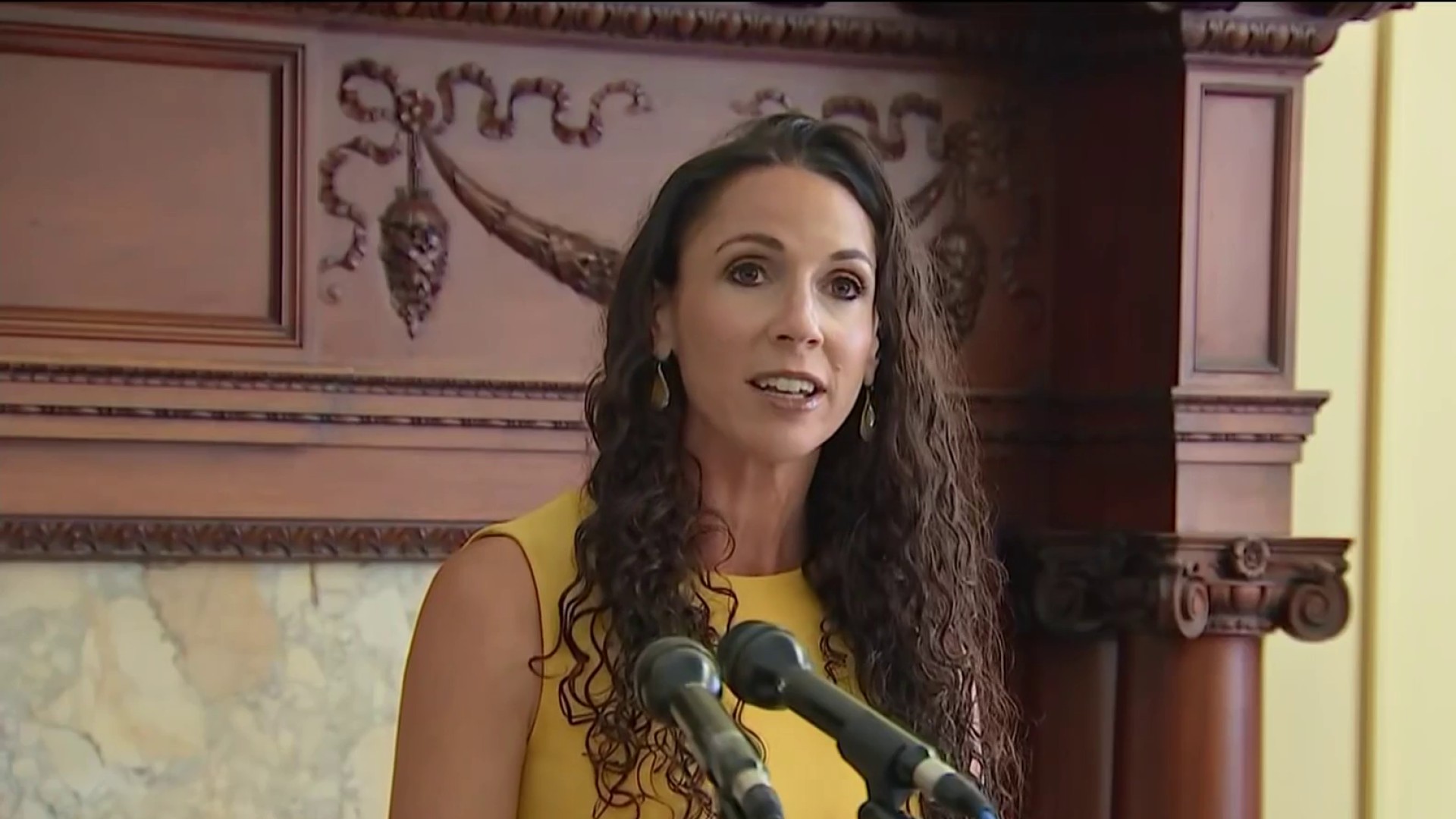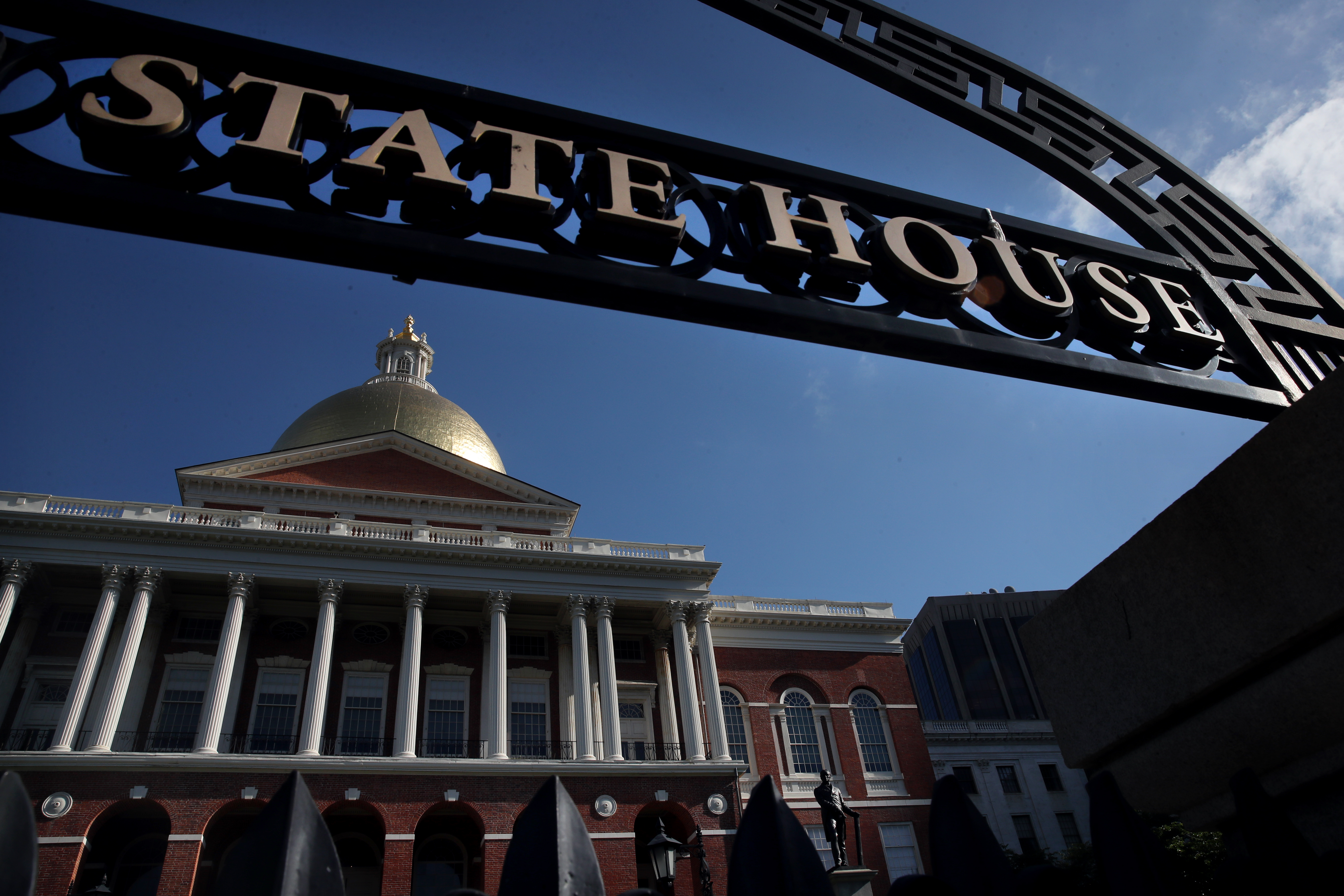Massachusetts' attorney general weighed in Friday on state Auditor Diana DiZoglio's efforts to audit the Legislature, saying her office "does not currently have the legal authority to audit the Legislature without the Legislature's consent."
Top House and Senate Democrats said the decision from Attorney General Andrea Campbell reinforces their opinion that the state auditor lacks the "statutory or constitutional authority to audit any other separate branch of government." House Speaker Ron Mariano and Senate President Karen Spilka, who have long resisted an audit, were quickly circulating excerpts from Campbell's letter.
WATCH ANYTIME FOR FREE
>Stream NBC10 Boston news for free, 24/7, wherever you are. |
"I believe transparency is a cornerstone of good government, but that transparency must be achieved through methods that are consistent with the law," Campbell said in a statement. "As the chief law officer of the Commonwealth, it is my office’s role to determine the legal position of the state by looking at the law as it exists on the books today, and evaluating what that law allows, and what it does not. After a thorough review of the statutory text, pertinent Supreme Judicial Court decisions, and relevant history, we have concluded that current law does not allow an audit of the Legislature over its objection."
DiZoglio said she was grateful for the work Campbell and her office put into the matter, but said she "strongly disagree[s]" with the decision. And she pledged to continue her legislative inquest.
Get updates on what's happening in Boston to your inbox. Sign up for our >News Headlines newsletter.
"I respect the AG’s right to her opinion, and to defend the position of legislative leaders. However, a question of statutory interpretation on a matter of such importance to taxpayers, is best answered by the courts, not the executive department of government," DiZoglio tweeted Friday morning. "Massachusetts has one of the most opaque legislatures in the nation and this decision reinforces the status quo that benefits powerful insiders while leaving working people in dark. My office will continue to conduct its audit of the Legislature."
To advance their legislative audit, DiZoglio and other supporters of greater legislative transparency are pushing a possible 2024 ballot question proposing a new law to make her auditing powers explicit.
DiZoglio this year sought Campbell's support for a potential lawsuit designed to clear the way for a legislative audit, but in the new letter the attorney general's office says its research is "sufficiently clear that litigation on this question is not necessary or appropriate."
In an email to senators Friday morning, Spilka wrote, "I am heartened that the Attorney General and her highly experienced legal team reached this conclusion -- the position we have argued for months -- based on the law, the facts, and the historical record. The Attorney General's findings are crystal clear: the Auditor's proposed audit has no basis in law and shall not proceed."
Get updates on what's happening in Boston to your inbox. Sign up for our News Headlines newsletter.
Legislative leaders already bring in outside auditors to look at their operations, but DiZoglio has a much more expansive audit in mind and her effort to push the auditing powers question to the ballot has been fueled by people who believe that the Legislature it too opaque.
Consultant Doug Rubin, who helped engineer Deval Patrick's successful two-term run as governor, is helping to push the ballot question.
"Should the initiative become law, we may need to consider whether, and the extent to which, constitutional limitations affect how the law would apply," Campbell wrote in the letter.
The News Service in September reported on a letter from Senate Counsel James DiTullio on behalf of the Senate, arguing that Campbell should not certify as ballot-eligible the initiative petition governing the state auditor's ability to audit the Legislature.



